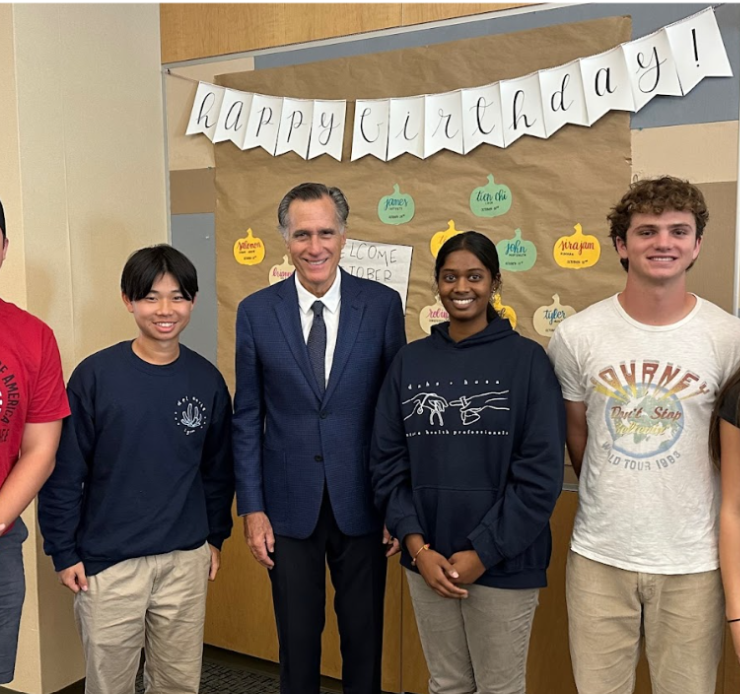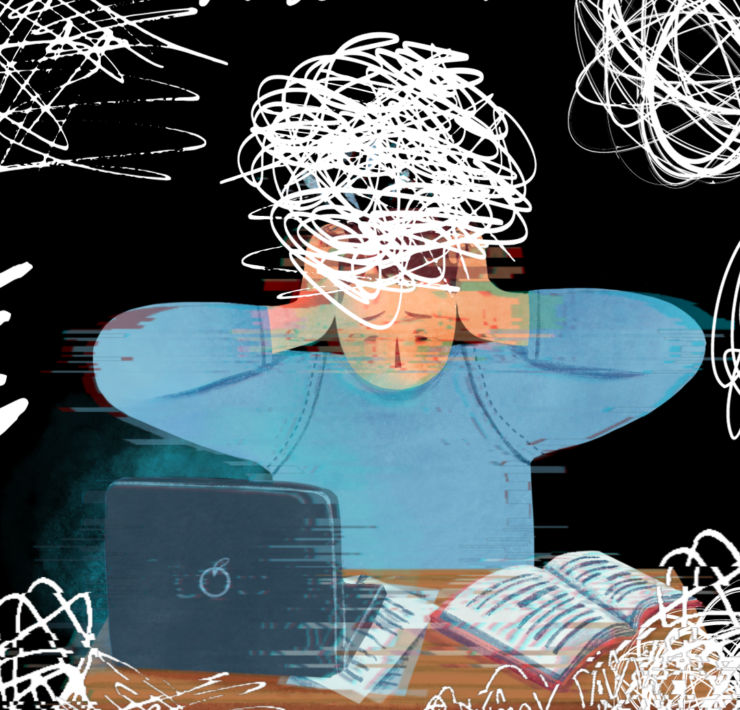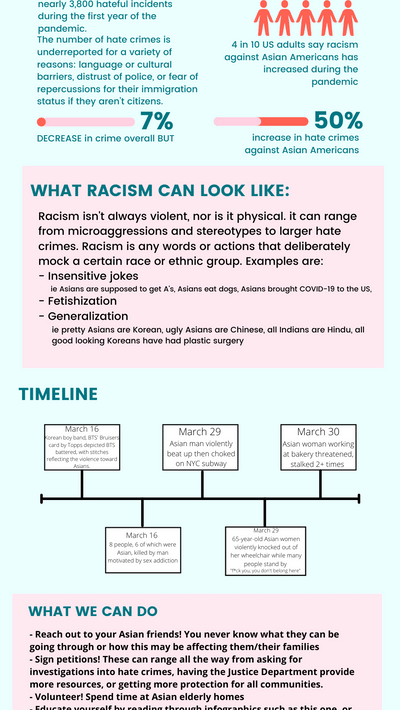AAPI Students at DNHS Speak Up About Anti-AAPI Hate

On March 16th, eight women, six of whom were Asian, were killed in a shooting in Atlanta, Georgia, in what the New York Times stated was “most likely a hate crime.” Asian American and Pacific Islander (AAPI) citizens across the country have responded to this event by organizing a series of rallies in the hopes of bringing awareness to the increasing hate sentiment to the AAPI community. At Del Norte, AAPI students have been sharing the effects that the increase in anti-AAPI violence has had on their well-being to do their part in raising the awareness needed to combat such racism.
Jocelyn Zhang (‘24), an Asian American student at Del Norte said that she had seen an increase in racist remarks on social media since the beginning of COVID-19 and that even small off-hand comments and behaviors from community members made her feel isolated.
“It’d just be people glancing my direction, sliding up their mask, and walking a few feet in the opposite direction; which they hadn’t done when walking past people who were ahead of me.”
Korean American student Grace Kim (‘23) said that she shared similar feelings of isolation.
“Because I am Asian, I am automatically grouped in as an ‘instigator’ of the virus. That false pressure has put my family and me on edge and uncomfortable in the place we call home. The Asian community didn’t do anything to deserve this kind of hate.”
“The Asian community didn’t do anything to deserve this kind of hate.”
Grace Kim (’23)
Chinese American student Cindy Zhang (‘22), said that she felt angry and alarmed by the use of phrases such as “China Virus” and the “Wuhan Flu” by global politicians to refer to COVID-19.
“These statements are clearly deliberately incendiary with an obvious purpose to scapegoat the AAPI community, specifically the Chinese-American community, and my feelings [of anger] are multiplied when I hear others use technicalities like, ‘Well, the virus came from China after all’ to deny the clear consequences of this type of language. It is deeply alarming that a subset of individuals feels empowered enough by the virus to act upon their prejudices.”
“It is deeply alarming that a subset of individuals feels empowered enough by the virus to act upon their prejudices.”
Cindy Zhang (’22)
Similarly, Chinese and Vietnamese American student Vivian Chung (‘21), said that she felt angry and frightened by the increased use of anti-AAPI language.
“Creating more division in an already divided government when everyone is experiencing so much hurt is unwarranted and immature. Additionally, being a person who was taught to blend in and keep my head down, I don’t know how I will stand up for myself. Even worse, I don’t know if those in power will stand up for me either.”
“I don’t know if those in power will stand up for me.”
Vivian Chung (’21)
To combat anti-AAPI behavior, students like Tyler Xiao (‘24) called for the AAPI community to “stand up for once and make [themselves] heard.”
“Asian-Americans can’t afford to stand down and continue being seen as a ‘model minority’ and being ignored amidst hate crimes and violence.” He proposes the elimination of the use of anti-AAPI slurs.
“Many statements that have been normalized are actually microaggressions. In order to change our mindset, we must change our rhetoric.”
Kim called for people to be mindful of their language in referencing the COVID-19 virus, saying, “People need to understand that words have an impact and that associating the virus with a location puts an everlasting bias on a group of innocent people who are also undergoing their own challenges…We need to be conscious of this language.”
Other students, like Zhang, called for unity in the POC community.
“There is a lot of divisive rhetoric–most potently, the model minority myth–that seeks to prevent minority groups from banding together and supporting each other. All minority groups must be cognizant of this type of rhetoric and actively choose to fight for each other. Solidarity is important.”
“All minority groups must be cognizant of this type of rhetoric and actively choose to fight for each other.”
Cindy Zhang (’22)
Chung says that she hopes to combat anti-AAPI racism by raising awareness.
“Ignorance and apathy are the two largest problems our society faces right now. We need to educate those around us and we can’t allow ourselves to be desensitized to the hate crimes that are happening to people right now.”
Nicole was the former Editor-in-Chief of The Talon. In her free time, she takes care of her two pet turtles. If you have any book recommendations, let her know.







